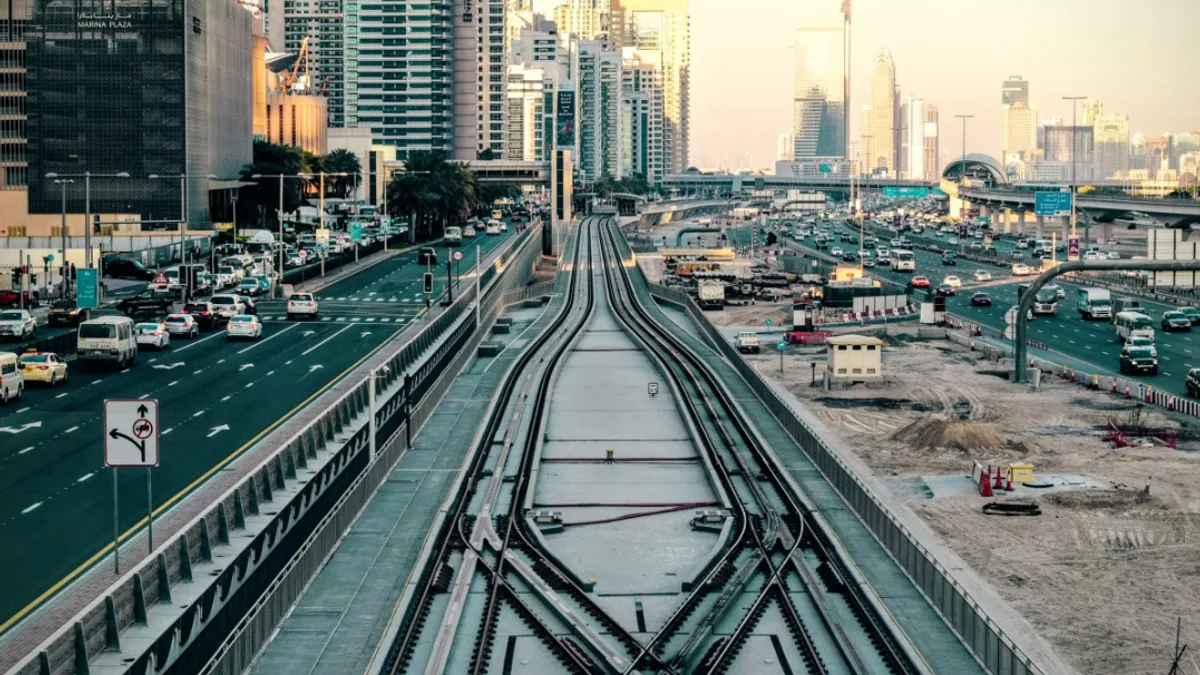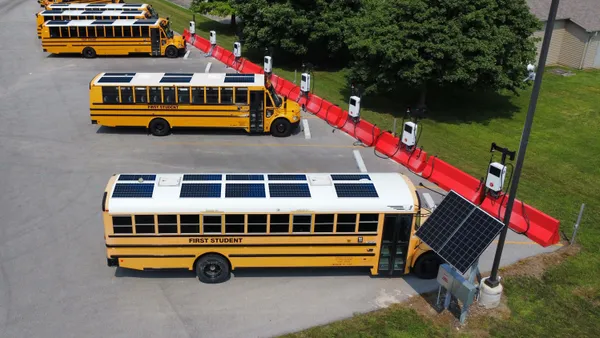Congestion. For the average American, it's an issue that triggers memories of frustrating commutes, idle cars and blaring horns during a morning commute. But how does congestion impact commercial vehicles — such as trucks, planes and trains — and the cities that they pass through or serve?
The efficiencies of U.S. supply chains are dependent on solutions that can alleviate congestion, but first city leaders and supply chain managers must understand the pain points, as they impact both time and budgets.
To illustrate these struggles, Smart Cities Dive and Supply Chain Dive have compiled some striking numbers that show the impact of rail, truck, air and port congestion on cities, supply chains and the public.
275,000The average number of passengers that pass through Hartsfield-Jackson Atlanta International Airport (ATL) daily. According to a fact sheet, ATL has held the title of "busiest airport in the world" since 1998.
40%The percentage at which urban freight delivery is expected to grow by 2050, according to the 2017 MHI Annual Industry Report. This growth points to a critical need for municipal and business leaders to collaborate on smart logistics infrastructure.
4.7 metric tonsThe amount of carbon dioxide emitted by the average passenger vehicle each year, according to the U.S. Environmental Protection Agency. This assumes an average fuel economy of 21.6 miles per gallon for a vehicle driven 11,400 miles each year. Fully electric vehicles have zero carbon emissions.
$500 millionThe amount of direct revenue the city of San Diego loses annually due to truck wait times at the Mexican border. As trucks wait to be inspected by U.S. Customs and Border Protection, goods can spoil or trucks can opt to enter through different checkpoints. The city has imposed a drone program to help with these logistics.
9.3 millionThe record-breaking number of twenty-foot equivalent units (TEUs), or small containers, that the Port of Los Angeles handled last year, marking a 5.5% increase from 2016. The port credits such numbers to data-based supply chain efficiencies that have helped to boost service abilities and productivity, according to GCaptain.
1,300The number of freight and passenger trains that pass through Chicago on a daily basis. BNSF, Canadian National, Canadian Pacific, CSX, Norfolk Southern, Union Pacific, Amtrak and Metra all contribute to this congestion.
$2 billionThe lofty price tag of a commercial vehicle-only lane project along I-75 in Georgia, designed to alleviate freight congestion. The project is dubbed the country's "first smart commercial vehicle corridor," and is slated to reduce traffic delays 40% by 2030.
$274 millionThe cost for PierPass to execute night gate operations at the ports of Los Angeles and Long Beach in 2017, however the company only collected $197 million from traffic mitigation fees to subsidize the cost. PierPass works with the southern California ports to address congestion and security, among other issues.











